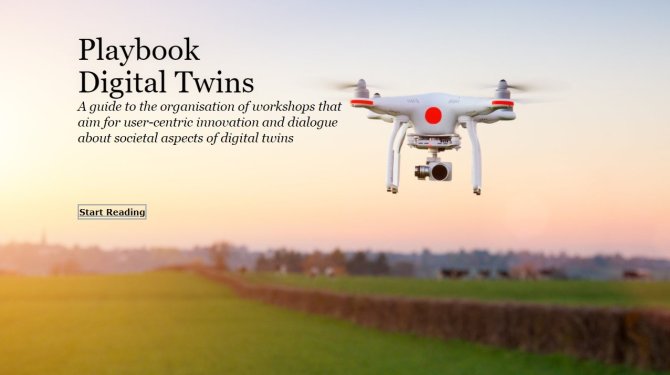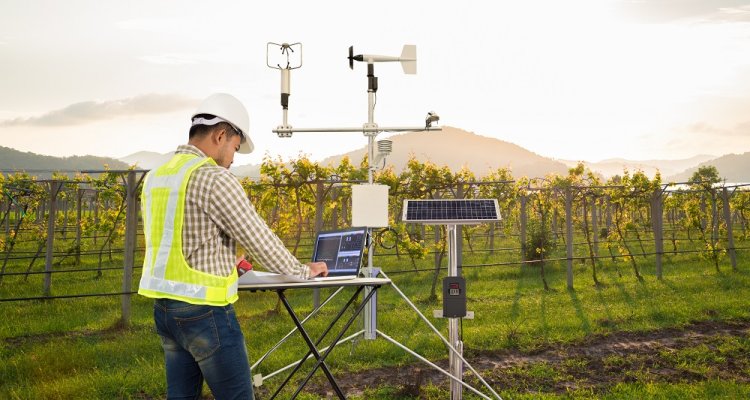
Digital Ethics and Responsible digitalisation
The development of digital technology (such as, AI, robots, IoT, Digital Twins) for the agri-food sector often raises ethical and societal questions. These questions are often not attended to until very late in the innovation process, when the technology is finished developing and ready to be put on the market. But at that point, these questions may hinder a fluid adoption and acceptance of the technology.
A lot can be done to anticipate these problems and deal with them at an earlier stage, when the innovation can still be changed. Sometimes an adaptation of design of the technology itself can help to meet societal concerns, sometimes an intelligent implementation plan helps to tailor the innovation to societal values and needs. Doing that when technologies are still ‘in the making’, contributes to realizing innovations that are valued and widely used.
Responsible innovation aims to reflect on societal and ethical aspects early on in the innovation process. While we make use of ethical perspectives, such as principles, codes of conduct and rights, our primary aim is to foster the reflection of innovators and societal stakeholders themselves about the innovation under development. It is our aim to enhance their thinking about what makes their innovation ‘good’. This is what we mean with ‘ responsible’ innovation.

What do we offer?
We combine scientific expertise about digital ethics and responsible innovation, with knowledge about concrete innovation trajectories in the sector. We offer:
Research
We can help to shape your innovation in a responsible manner; that is, in an inclusive way, taking into account societal and ethical values and norms. We will do that by means of:
- Value-sensitive design. We explore ethical and societal values of potential end-users of new technology during its development. Based on this, we explore possibilities to attend to these values in the further development or design of the technology, or in the development of an implementation trajectory.
- Qualitative research; by means of interviews and focusgroups with end-users and other stakeholders, we explore how an envisioned innovation will influence human (social) lives and how stakeholders evaluate that.
- Dialogue and reflection. We are specialized in methods to reflect on societal and ethical aspects of innovative technologies, and draw concrete conclusions from that which helps innovators forward.
Services
Some of the services we offer are:
- A Mooc ‘Ethics and responsible innovation’ (forthcoming, with Wageningen Academy)
- A training programme about responsible innovation and/or ethics tailored to your organisation’s question
- Moral deliberation within your organisation or business. This service will be shaped in collaboration with your organisation/business and will focus on a question or problem that you encounter. We can facilitate a deliberation with professionals within your organisation to come to a well deliberated solution.
- Ethical codes for responsible data sharing within your company and a suitable strategy for implementation and administration thereof.
Scientific publications
- Ryan, M. and Van der Burg, S. On the need for an enriched Code of Ethics for Farm Data Sharing (submitted to Journal of Agricultural and Environmental Ethics)
- Van der Burg, S., Kloppenburg, S. Kok, E. and Van der Voort, M. Digital Twins in Agrifood and Life sciences; societal and ethical themes and questions for further research (forthcoming in 2021; accepted by NJAS)
- Ryan, M. and Van der Burg, S., Bogaardt, M.J. Identifying key ethical debates for autonomous robots in agri-food: an exploration of the literature (submitted to Journal of Agricultural and Environmental Ethics)
- Ryan, M., 2020. Agricultural big data analytics and the ethics of power. Journal of Agricultural and Environmental Ethics, 33(1), pp.49-69.
- van der Burg, S., Wiseman, L. and Krkeljas, J., 2020. Trust in farm data sharing: reflections on the EU code of conduct for agricultural data sharing. Ethics and Information Technology, pp.1-14.
- Ryan, M., 2019. Ethics of using AI and big data in agriculture: The case of a large agriculture multinational. The ORBIT Journal, 2(2), pp.1-27.
- van der Burg, S., Bogaardt, M.J. and Wolfert, S., 2019. Ethics of smart farming: Current questions and directions for responsible innovation towards the future. NJAS-Wageningen Journal of Life Sciences, 90, p.100289.
For our previous publications of research, visit the our Research@WUR overview page from:
Tools
Value sensitive design
To help tech-developer think about values during the design of a smart farming application, we developed a guideline. This supports developers to take societal values into account during design. View the guideline on iof2020.com.
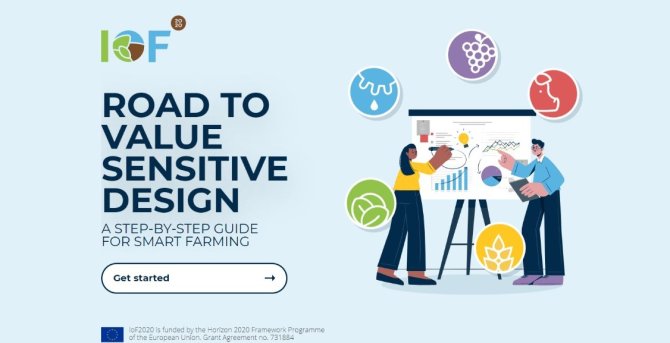
Card game 'Review Break'
The card game ‘Review Break’ is developed to explore together with colleagues how various stakeholders evaluate a digital farming technology. The card game can be downloaded and printed and then played. The cards can be found on the IOF2020 website.
You can download the play rules of the card game ‘Review Break' and watch a small film with an explanation of the game rules for ‘Review Break’ on the right.
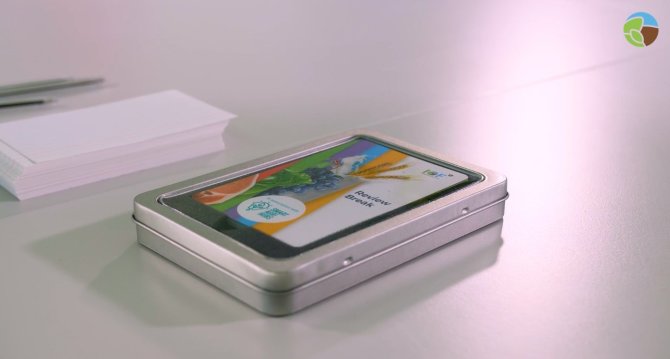
- Unfortunately, your cookie settings do not allow videos to be displayed. - check your settings
Ethical deliberation
Sometimes people disagree about values. This happens quite often. In these situations there is an ethical problem. There are different ways to reflect on the best way to solve ethical problems together with other people (such as colleagues). Download the moral deliberation guideline.
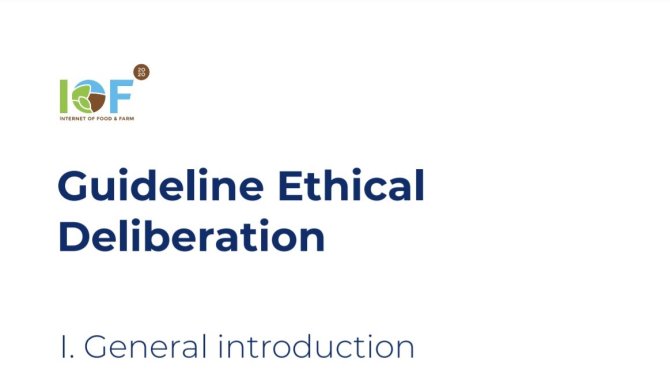
Dialogue about digital twins
The societal effects of digital technologies are sometimes hard to foresee. In an exploratory project we shaped scenarios and value-cards which provide input to start a reflection about these effects early in the development process. The Playbook Digital Twins provides information about this dialogue method.
